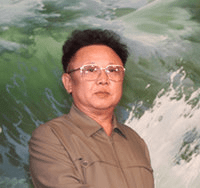Last week proved to be a busy one for international efforts to negotiate a settlement to North Korea's nuclear weapons program. Although some progress occurred, longstanding obstacles persist while new impediments have arisen.
The policies of the Democratic People's Republic of Korea (DPRK) represent a major obstacle toward realization of U.S. President Barack Obama's Nobel Prize-winning nuclear arms control agenda. Obama delivered his well-received April 5 speech in Prague just days after North Korea resumed testing long-range "rockets" despite a U.N. Security Council (UNSC) resolution prohibiting such missile-related activities. More recently, the president also singled out North Korea, as well as Iran, as a major proliferation challenge during last month's special UNSC summit on curbing nuclear proliferation.
The Six-Party Talks on Korea's Denuclearization among the DPRK, China, Japan, Russia, South Korea, and the United States began in August 2003. Their fundamental objective has been to bring an end to North Korea's nuclear weapons and ballistic missile programs in return for various economic, diplomatic, and other incentives.

